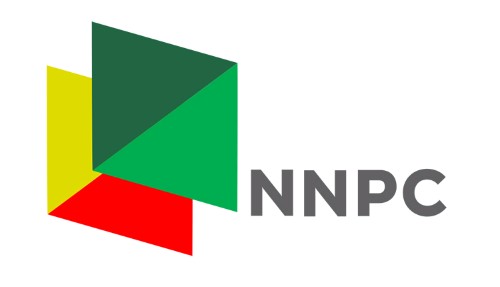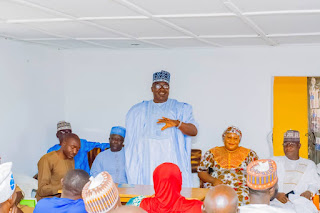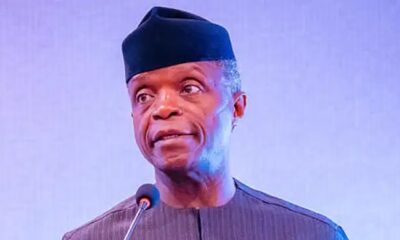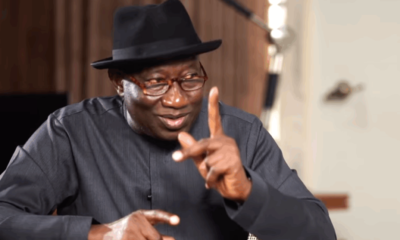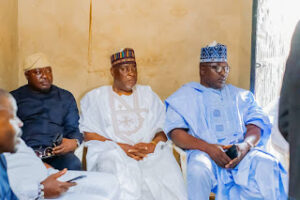The Nigerian National Petroleum Company Limited (NNPCL) remitted literally zero funds to the Federation Account in 2022 due to the payment of subsidy on Premium Motor Spirit, popularly called petrol, the Chief Financial Officer, NNPCL, Umar Ajiya, has said.
NNPCL is a significant source of income for Nigeria. It serves as the national oil corporation, managing the nation’s gas and crude oil reserves and handling various other important duties.
In a 5.24-minute video that the oil major posted on Sunday, Ajiya claimed that the gasoline subsidy prevented the revenue-generating company from filing taxes and royalties to the Federation Account and also prevented it from turning a profit.
Also, NNPCL, in the documentary, said, “The lingering constraint of fuel subsidy payment hampered its (NNPCL) growth potential, until a new administration emerged, bringing an end to the subsidy regime and saving the company from bankruptcy and setting it on a path of financial prosperity.”
It stated that this enabled the oil firm to grow its profit from N674.1bn in 2021 to N2.54tn by the third quarter of 2022.
President Bola Tinubu declared during his inaugural speech on May 29, 2023, that “subsidy is gone!” The declaration by the President was immediately enforced by NNPCL the next day. NNPCL is Nigeria’s sole importer of PMS.
Reacting to this, Ajiya said, “That action of saying subsidy has gone, literally saved this nation N400bn on average every month. And what that meant was that the totality of the entitlements of tax, royalties and profits were all going into subsidy.
“And that was why we reached a position in 2022 where we literally remitted zero to the Federation Account. It was unpalatable, but we can’t give what we don’t have.
“We were taking NNPC’s cash flows from other operations to augment for products and it could not be sustained beyond June 2023.”
Fuel subsidy gulped over N3.3tn in 2022, as the Federal Government struggled to hold the cost of the product far below its global market price. The cost of the commodity jumped by over 250 percent immediately subsidy was removed by Tinubu.
Ajiya confirmed that the removal of subsidy had made the company start making remittances into the Federation Account.
“We have now begun to pay dividends to the federation. We are also paying our due obligations in terms of taxes and royalties,” he stated.
The company further stated in the documentary that the end to subsidy enabled it to contribute N4.5tn to the Federation Account in nine months.
“For the first time in a long time, NNPC Ltd in 2023 contributed to the Federation Account, accounting for N4.5tn between January and September 2023,” the national oil company stated.
Meanwhile, the Nigerian National Petroleum Company Limited spent an estimated NN2.9tn on wages, entertainment, bank charges, running cost and others between September 2021 and December 2022.
This was contained in the NNPCL’s recently released Audited Financial Statement for 2022.
In the report, the NNPCL Group gulped a total of N1.7tn as its general and administrative charges for the 16 months period, while the company spent a sum of N1.2tn.
According to the report, both NNPCL Group and the company spent a total of N872bn on “other expenses” not clearly specified in the document.
Security expenses by the Group and the company stood at N532bn, while entertainment expenses took N8.35bn.
In the period under review, a sum of N373bn was spent on employee benefit expenses, which include salaries, wages, allowances, pensions and gratuities.
Directors’ expenses gulped N1.2bn, office running costs consumed N1.8bn, while management and facilitation fees took N295m.
It was observed that N1.65bn was expended on donations; audit fees was N2bn as fines & penalties took N45bn.
Other expenses include bank charges, N675m; depreciation of other property, plants and equipment, N67.9bn; depreciation of right of use asset, N1.3bn; advertisement and publicity, N4.9bn; legal and professional fees, N8.3bn; printing and stationery, N57.5bn; rents and rates, N35bn; repairs and maintenance N219.9bn; travelling and transport, N354.2bn; minimum tax and levy, N15.65bn, write-off of property, plant and equipment, N139.8bn; postages and telephone, N3.46bn among others.
The report showed that the NNPCL Group generated a revenue of N8.82tn in 16 months and the company made a sum of N2.9tn from September 2021 to December 2022.
For the NNPCL Group, the profit before income is N1.81tn; income tax credit is N717bn. Profit for the period is N2.52tn, while total comprehensive income for the period is N4.7tn.
As for the NNPCL Company, the profit before income is N1.53tn; income tax credit is N459.7bn. Profit for the period is N1.992tn, while total comprehensive income for the period is N3.77tn.
The NNPCL Group generated N3.53tn revenue from crude oil sales; N.4.51tn from petroleum products sales; N683bn from sales of natural gas N683bn and N100.5bn from services N100.5bn.
“Revenue from crude oil sales is from sales of utilized crude during the period and liftings of equity interest in various oil assets.
“Petroleum products sales include the sale of Premium Motor Spirit, Dual Purpose Kerosene, Automotive Gasoline Oil, Naphtha, lubricants and other related products.
“Sale of natural gas represents the invoice value (transaction price) of natural gas sold to third parties. Revenue from services consists of revenue from seismic contracts, time8 based contracts, gas transmission tariffs, shipping, marine and engineering,” the report explained.
The report disclosed that the NNPCL account was audited by PricewaterhouseCoopers Chartered Accountants, SIAO Partners Chartered Accountants and Muhtari Dangana and Co. Chartered Accountants.

 BIG STORY4 days ago
BIG STORY4 days ago
 BIG STORY4 days ago
BIG STORY4 days ago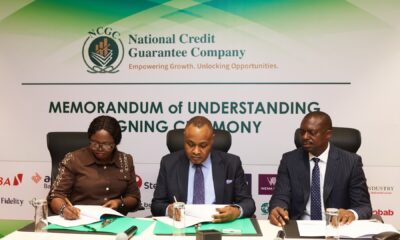
 BIG STORY2 days ago
BIG STORY2 days ago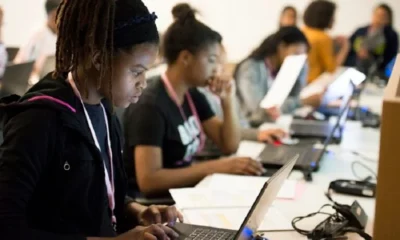
 BIG STORY4 days ago
BIG STORY4 days ago
 BIG STORY1 day ago
BIG STORY1 day ago
 BIG STORY2 days ago
BIG STORY2 days ago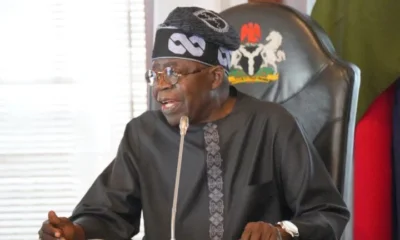
 BIG STORY3 days ago
BIG STORY3 days ago
 BIG STORY3 days ago
BIG STORY3 days ago




